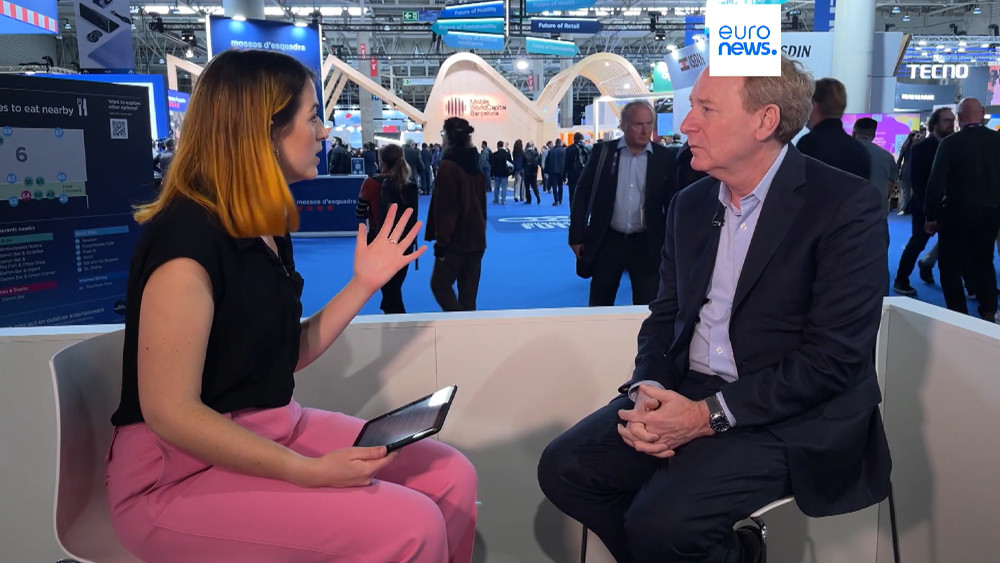
4 days. 335 expert sessions. Over 90,000 attendees.
This is what awaited telecoms experts attending Mobile World Congress (MWC) at the Fira Gran Via in Spain from all over the world. One of the largest and most influential conferences for telecommunications businesses worldwide, this year’s event took place between 26-29 February. As always, it was an extraordinary four days, filled with exciting announcements, talks, and conferences exploring the sector’s future innovation and enterprise opportunities.
This year, ZIRA was represented by Chief Product Officer Lejla Pljevljak-Rašidagić and VP of Product Rigas Parathyras.
After a busy few days, in this blog, they share their thoughts on the conference’s hottest topics and present ZIRA’s take on them.
5G Standalone: A disruptive—but positive—force
Unsurprisingly, 5G was front and center at MWC as well as on Mobile World Live: the discussion around the latest advancements in 5G technology focused on enterprises’ ability to harness its power and what steps CSPs need to take to develop their network infrastructure for the continued successful rollout of 5G.
An important aspect of this discussion is 5G Standalone, or 5G SA, technology. This marks a turning point in the 5G story, as it brings disruption to CSPs, suppliers, and partners alike. Making 5G SA a success and making the most of every growth opportunity that 5G SA can bring means adapting to an entirely new ecosystem and meeting the demands of new B2B customers.
With the advent of 5G SA, updating traditional BSS systems becomes inevitable, as operators will require a much broader set of capabilities than ever before. A modular and adaptable BSS solution can give them the flexibility they need to adopt new partners and establish a B2B2X business model.
Generative AI: A succession of magic moments
The growing opportunities presented by AI technology also dominated MWC from the outset, especially after the announcement of Microsoft’s AI guiding principles and its multi-year collaboration with Mistral AI on day 1.
In terms of CSPs and specifically BSS, a lot has been said about the potential of AI to improve processes and save operators time and money, allowing them to focus on long-term strategic goals. This is especially true in customer experience: in fact, a 2023 TM Forum survey found that 92% of operators asked were already using generative AI to enhance customer chatbot experiences.
At the moment, most AI use cases are like that: relatively small but impactful in nature, like provisioning in one click, zero-touch operations, or self-healing networks. There will undoubtedly come a moment, however, when these “magic moments” give way to more refined opportunities that will transform CSPs’ operations in unexpected ways.
To prepare for that time, CSPs should consider recruiting flexible BSS solutions that can help them incrementally integrate AI technology into their networks and stay ahead of the competition.
Sustainability in telecommunications
MWC’s sustainability agenda was also packed, with low-carbon product announcements from ZTE and a half-day Sustainability Summit, to name but a few.
The telecommunications sector hasn’t had the easiest time balancing its challenging business goals with net-zero efforts in recent years. This is not due to disinterest in the cause: the latest GSMA sustainability report found that 43% of the mobile industry has committed to reaching net zero by 2050 or earlier. Simply put, with contracting margins and massive upfront investments into upgrading network infrastructure, it has been difficult for CSPs to prioritize their green objectives.
Thankfully, we are already seeing ways in which technology is accelerating the sustainability agenda for CSPs worldwide. Automation and digitization have shown significant potential in increasing resource efficiency. Advanced analytics can uncover energy usage insights and support the optimization of resources.
The role of BSS here is to help CSPs lay the foundations of a more sustainable ecosystem by enabling efficiencies in their operations through software modularity.
Convergence continues—and OSS/BSS follows suit
Considering the impact of emerging technologies on their own, it follows that the force—or convergence—of all of them combined would be even more powerful. When AI and 5G come together, for example, we get the increased speed and reduced latency of the former supercharged by the astonishing possibilities of the latter, enabling easier access to applications like smart cities, autonomous vehicles, connected health, and more—as discussed at a convergence conference on day 3 of MWC.
For CSPs, convergence plays into the larger trend of digital transformation, with the convergence of voice and data services transforming CSPs into DSPs (Digital Service Providers). This entails a mindset shift and not insignificant business challenges for CSPs, as customers increasingly require a service provider who can fulfill their every technology need from a single platform.
What can help CSPs in this effort is a convergence-friendly BSS platform that can enable telcos’ adoption of digital solutions. With a flexible and adaptable BSS/OSS infrastructure, CSPs can more easily achieve a DSP model while keeping customer experience front and center and without having an excessively negative impact on the existing customer base.

Conclusion
The start of trade show season, marked by MWC, begins an exciting period for the industry, with a cavalcade of important discussions and a who’s who of the biggest telco players. At ZIRA, we believe the communications sector is experiencing a real turning point, with new technologies bringing value at unprecedented speed. We look forward not just to witnessing this change, but playing an active role in it by helping CSPs adapt to and anticipate transformation with state-of-the-art BSS solutions.






